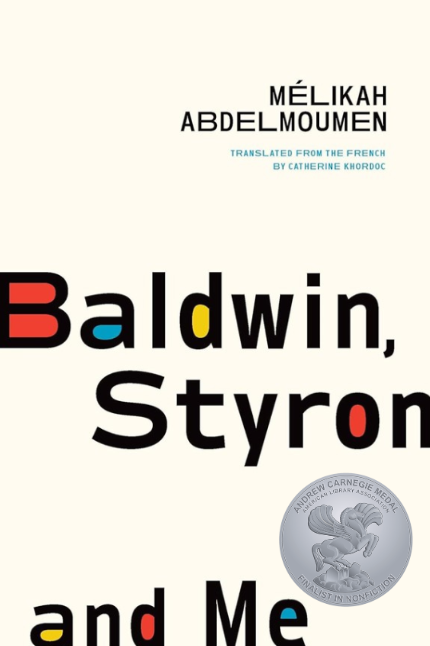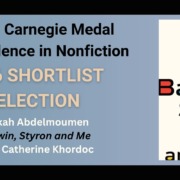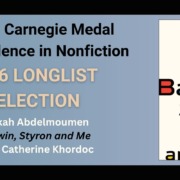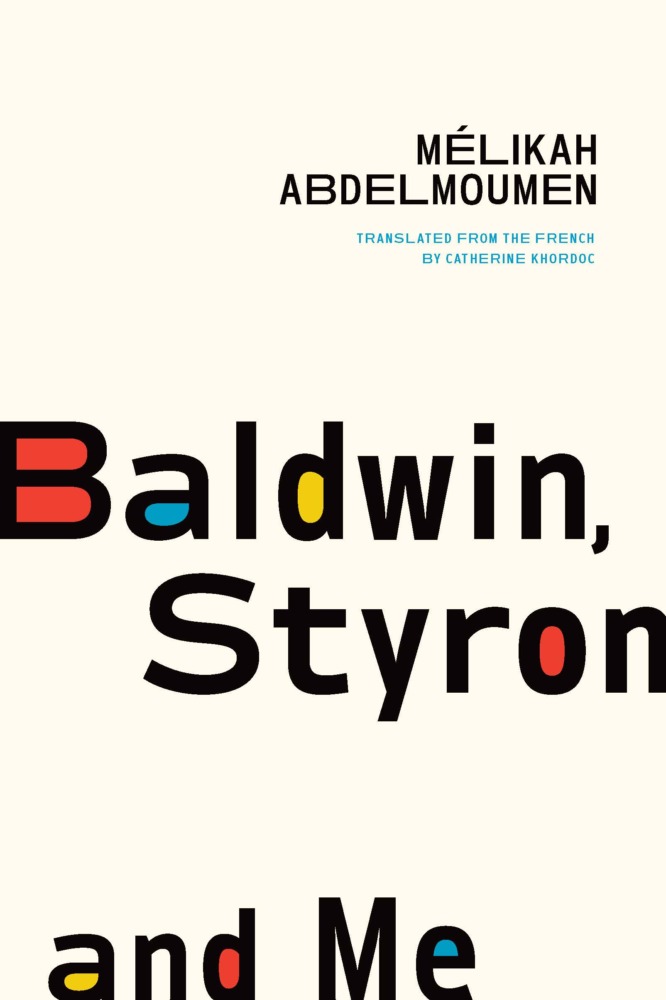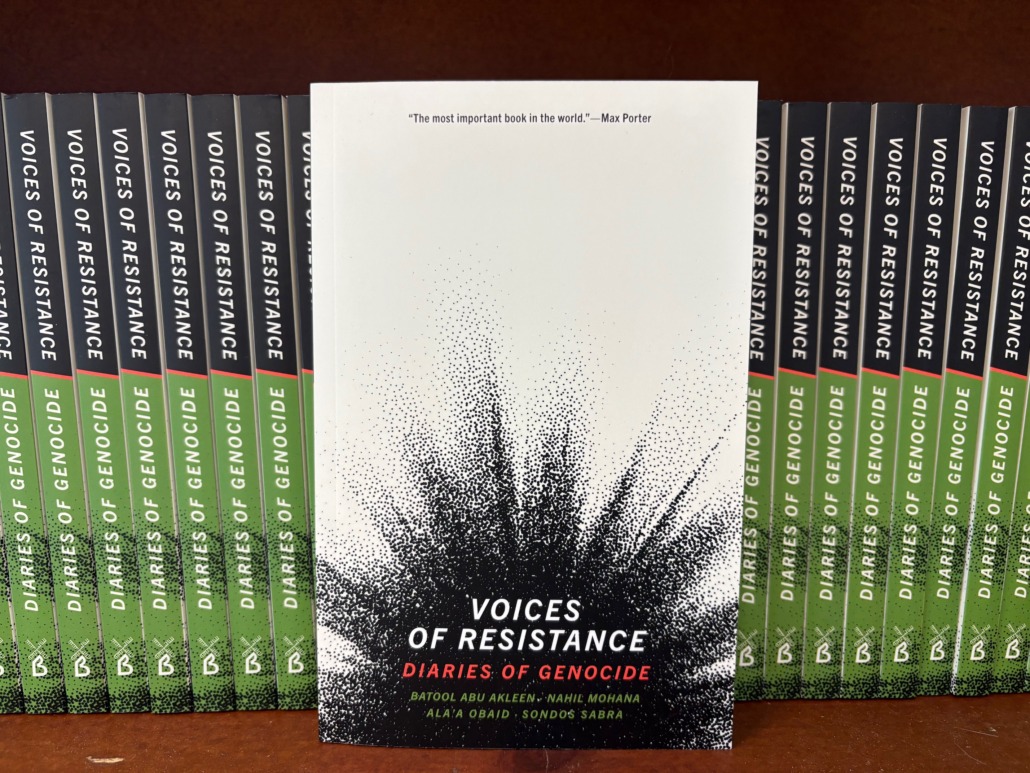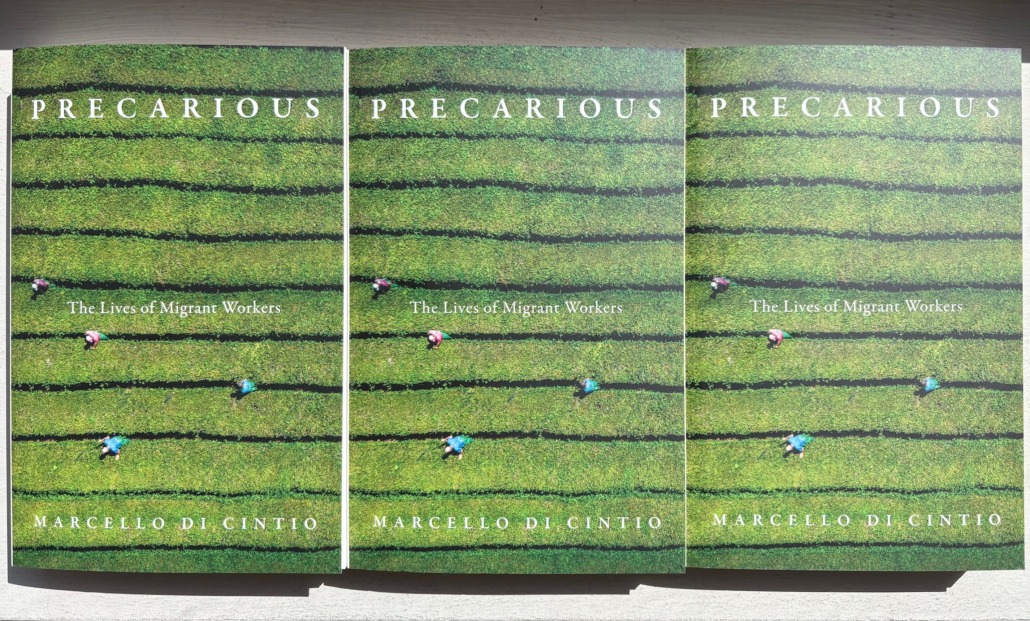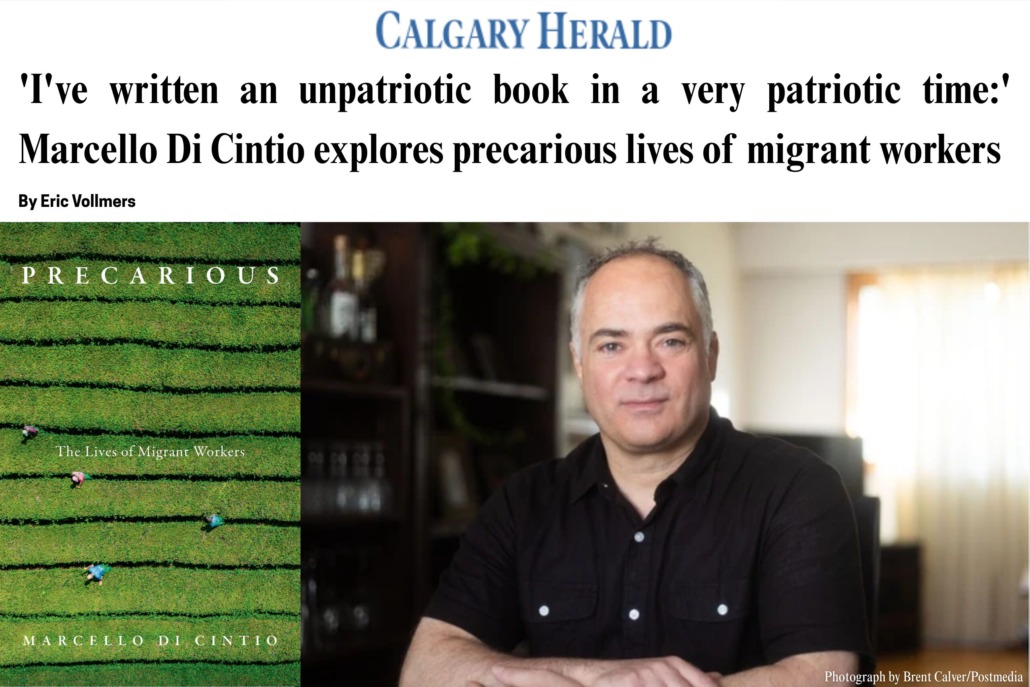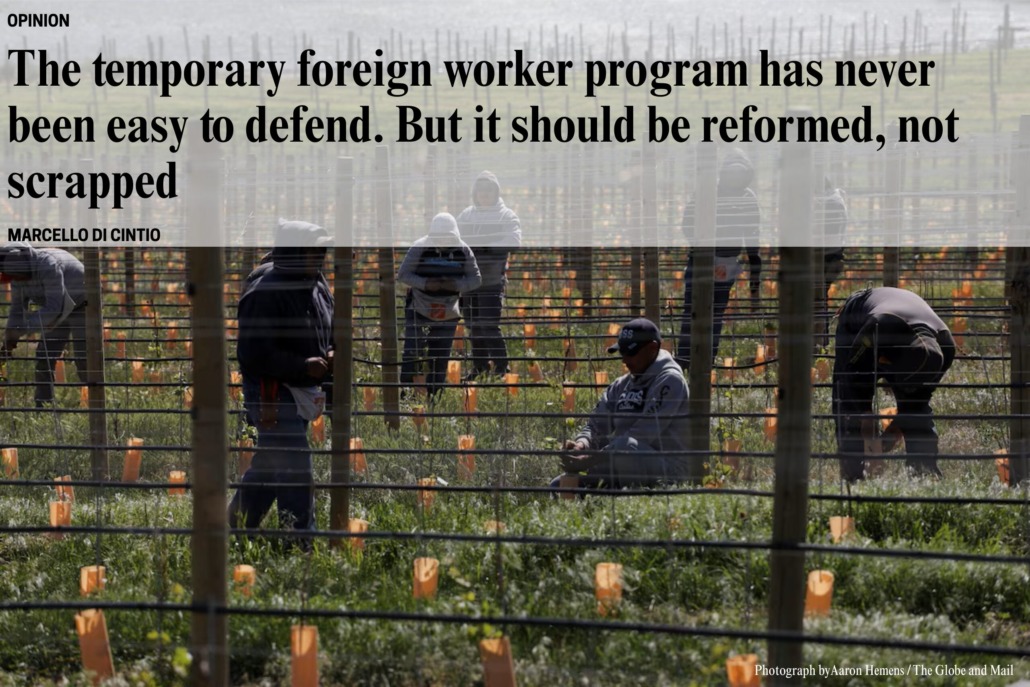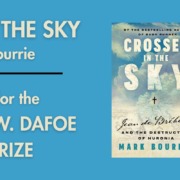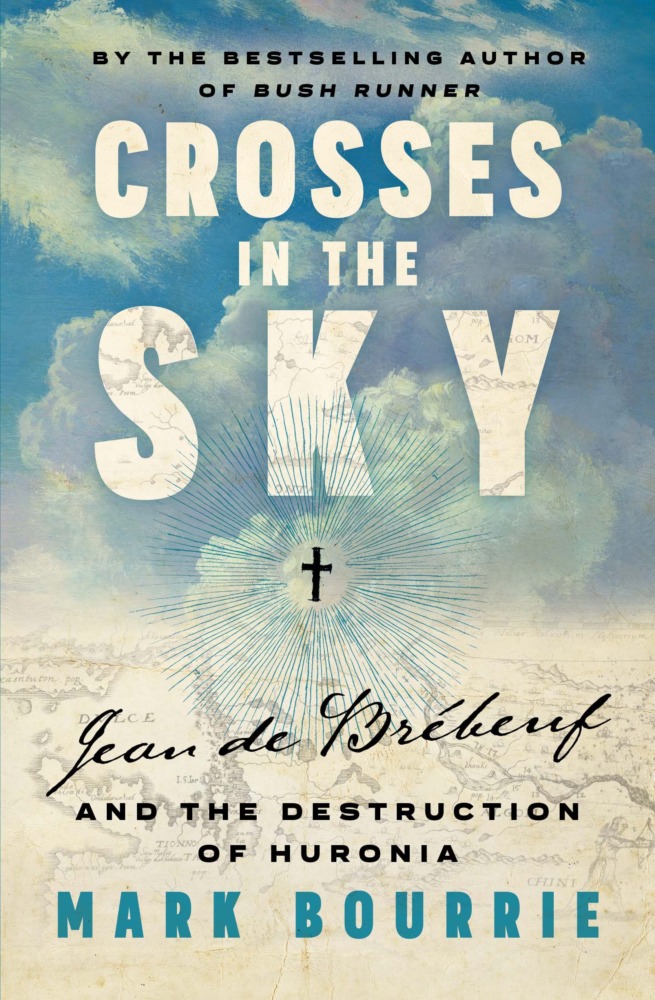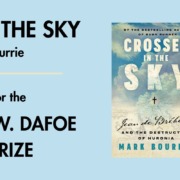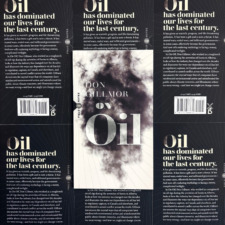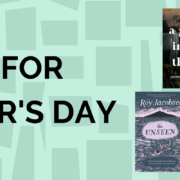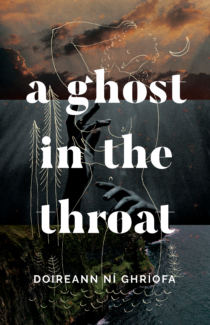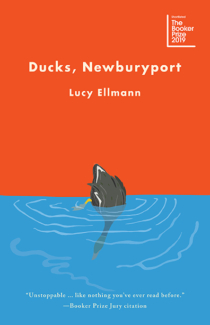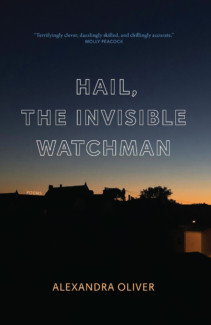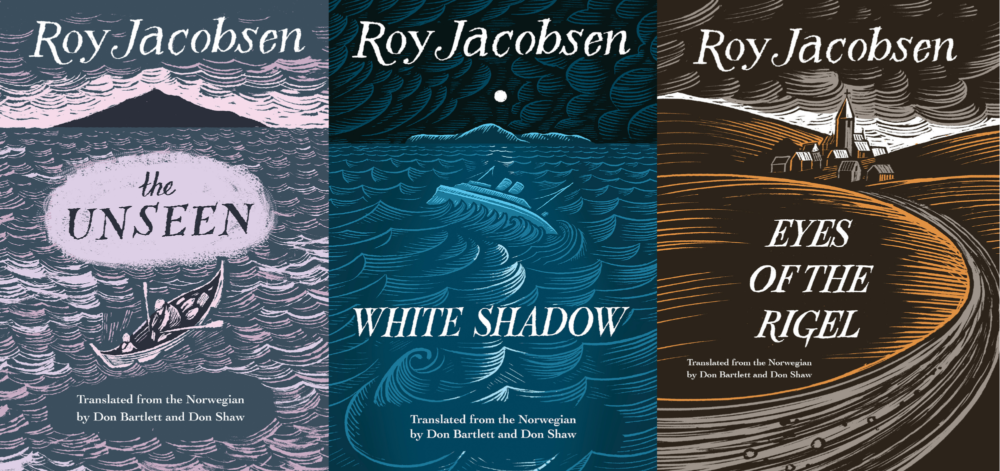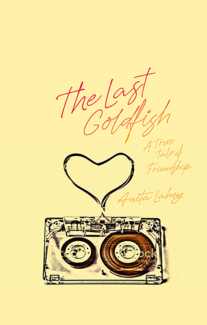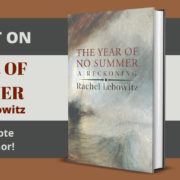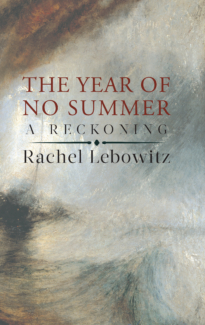Want to get new excerpts, musings, and more from The Bibliophile right away? Sign up for our weekly online newsletter here!
***
In which! The crew of the good ship Biblio sails into the new year with a preview of some of their most anticipated 2025 titles. (Yes, we made them choose. No, they didn’t like it.)
***
Vanessa’s Picks
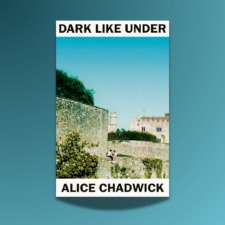
Cover design by Kate Sinclair.
Dark Like Under by Alice Chadwick
My new year’s resolution was to not complain about having to choose from among our books, and so I guess that’s all I’m allowed to say about that. Instead I’ll say how excited I am that we’ll be sharing Alice Chadwick’s debut with you. It’s a circadian novel, set over the course of a single day in the 1980s, and it follows a large cast of characters at an elite secondary school in a rural English town as they grapple with the surprising death of a beloved member of the faculty. It’s a book about resilience and connection, systems and resistance, renewal and what we leave behind, and a work of great poetic insight, keenly sensitive to paradox: that the old ways oppress while the ancient can illuminate, that the pastoral can be claustrophobic as well as restorative, that time is both a line and a circle. The form itself works into and against the conventions of Western narrative, the Western mind: in following the hours of the clock, around which human action revolves, we are reminded that although the earth turns circles inside of circles, somehow we still believe we travel a straight line, even in spite of having watched the hands sweep around and around. It’s the kind of fiction, and vision, that is for me the antidote to the disaffected irony and fashionable despair of a great deal of contemporary fiction, a book that risks all those old-fashioned ideas: generosity, forgiveness, love—even hope.

Cover design by Ingrid Paulson.
On Oil (Field Notes #10) by Don Gillmor
If you’d told me a year ago that I would spend a late afternoon inhaling a nonfiction book about the history and culture of oil in North America, stopping only because it was time for dinner and picking it back up to finish as soon as the dishes were done, I’d have been, admittedly, surprised. But if you’d told me Don Gillmor was the author, I wouldn’t have argued. Gillmor, a novelist, memoirist, historian, children’s author, journalist, and, it turns out, former roughneck, can do just about anything. In On Oil, Gillmor draws on the latter two professions to chart the rise and imminent fall of the oil industry, beginning with firsthand experience on oil rigs during the seventies oil boom in Alberta and traveling across the continent and then the globe to show the complex and maddening means by which oil has captured government interests and profoundly impacted—for better, and more often for worse—life on Planet Earth. The picture, I found out, is both more and less grim than one might think, but I’ve always been with Francis Bacon on difficult truths: knowledge is power.
***
Ahmed’s Picks
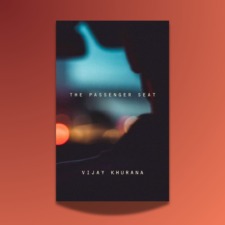
Cover design by Zoe Norvell.
The Passenger Seat by Vijay Khurana
This was the first book I read as an official Biblioasis employee and I was floored. It was the prose that first did it, beautifully tense, controlled, electric. And then the questions this novel raises—about masculinity, violence, personal responsibility—all lingered in my mind for weeks after. We follow two young men who hit the road with no real plan other than to get away from their lives and their town. But, moment by moment, we see how they become more and more violent, until they cross a line from which they can never return. It’s all a game to them and it makes you wonder if we could ever learn anything from those who commit such violent acts. There are no neat and tidy answers, but I think that’s what’ll keep me coming back to this book. It’s a tragic story that stays with you because it insists we don’t look away anymore.

Cover design by Ingrid Paulson.
On Book Banning (Field Notes #9) by Ira Wells
The increase in book bans across the country is startling and alarming. Some people want to ban books with LGBTQ+ characters because they think those books are indoctrinating their children. And some people want to ban classics and important contemporary works because they contain language deemed offensive today. I wonder what books will be left on the shelf. Probably bland ones. With the forces of censorship seemingly getting stronger, I’m really grateful for what Wells does in this short book. It’s both a history lesson and passionate defense for the right to read. From ancient to recent cases, Wells walks us through the history of censorship and shows how and why book bans are making a comeback. On Book Banning is an excellent distillation of how we treat books today and how book bans are connected to the need to control others. It’s a useful reminder of why the freedom to read is crucial and what we lose when it is taken away. A very important read today and, I think, for the years to come.
***
Dominique’s Picks
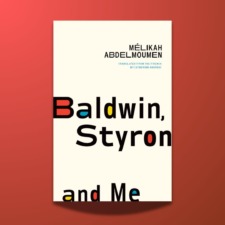
Cover design by Ingrid Paulson.
Baldwin, Styron, and Me by Mélikah Abdelmoumen, translated from the French by Catherine Khordoc
I read Baldwin, Styron, and Me in two sittings; the book’s hybrid form is addictive—it’s at once a memoir of Québecois identity, a literary history of the friendship between James Baldwin and William Styron, and a thoughtful critique of race, cultural appropriation, and the possibility for meaningful disagreement and debate. Abdelmoumen is a champion of resisting certainty, and her commitment to this is refreshing and inspiring (and important as we enter the increasingly politically-fraught new year).

Cover design by Ingrid Paulson.
UNMET by stephanie roberts
I’ve already read this collection a few times, and it’s impressive. roberts’ poems lean against surrealism without losing their humanity, their creatureness, their affinity for the real. And these sentences are just so pleasurable to read: they sinew and worm into a world-expanding illogic. I’ll be reading her first collection, rushes from the river of disappointment, soon. I’m thrilled UNMET is making its way into the world next year; I think roberts is one of Canada’s best, most original voices.

Cover design by Ingrid Paulson.
Dust: More Lives of the Poets (with Guitars) by Ray Robertson
I love reading about music almost as much as listening to it. And Robertson writes from a loving, considerate space that avoids the hyper-analytical, that instead creates a kind of music to live alongside the music. I can tell from this book’s setlist (Alex Chilton, Captain Beefheart, Muddy Waters, etc.) and from his previous Lives of the Poets (which includes some truly beautiful pieces on Gram Parsons and Townes Van Zandt), that this book will be a fount of joy and discovery for me in the new year.
***
Ashley’s Picks
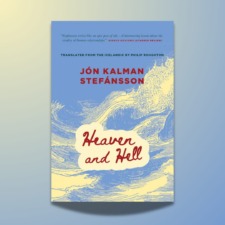
Cover design by Natalie Olsen.
Heaven and Hell by Jón Kalman Stefánsson, translated from the Icelandic by Philip Roughton
Your Absence Is Darkness was one of my favourite reads of last year, so I was quite pleased to find out that we’re not only publishing more of Stefánsson’s work, but a full trilogy is on the way. Heaven and Hell is a brilliant start to The Trilogy About the Boy, with everything I loved from Your Absence returning here, in perhaps what some might find a more accessible introduction to his writing (translated in excellent form by Philip Roughton). Stefánsson has this way of describing the world—from the way two distant lovers look up at the same moon, to the chill of a stormy ocean soaking a man to the bone, to the slow loss of sight—that really strikes a reader, and makes me consider things in a different way. It’s poetic and straightforward, and complements the emotions woven through the story, of the boy’s struggle with life or death, and the ways in which he connects with the people around him and remembers those who have passed. I look forward to reading more of this journey.
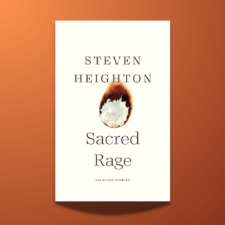
Cover design by Ingrid Paulson.
Sacred Rage: Selected Stories by Steven Heighton
I first learned of this forthcoming collection of the late Steven Heighton’s stories in the form of a handwritten table-of-contents, passed along from editor John Metcalf, to our publisher Dan, and then along to me—for compilation. Consequently, I’ve gotten to know this collection quite well already, having spent the last few months gradually acquiring, scanning, and cleaning up the converted text of a majority of these stories from older editions without available digital files. Heighton takes his readers across the world, from the back kitchen of a chicken restaurant to an onsen in Japan. Reading a collection in bits and pieces, before it’s been neatly woven together in order and packaged in its usual final book form, is a strange but exciting experience; I can say I’ve read Sacred Rage already in one sense, but what I’m looking forward to most is the day we receive our printed copies in-office, so I can finally sit down and enjoy these brilliantly written short stories—without the need to hunt for missing characters and lost italicizations—and be properly reintroduced to Heighton’s best works.
***
Emily’s Picks
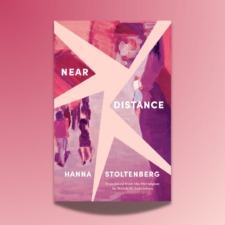
Cover design by Natalie Olsen.
Near Distance by Hanna Stoltenberg, translated from the Norwegian by Wendy Harrison Gabrielson
I’m not a reader who is typically drawn to a domestic drama or narrative centered around motherhood. Don’t get me wrong, I’ve read plenty of amazing literary books about just these things—but they’re rarely a narrative I find myself naturally delighting in. I was surprised and delighted as soon as I opened Near Distance by Hanna Stoltenberg (trans. Wendy Harrison Gabrielson). Taut and sparse, it’s the story of a mother (Karin) who has largely opted out of her daughter’s (Helene) life. When Helene asks Karin to travel with her to London, the result is an emotionally tense and very uneasy road trip story. It’s cold, sparse, and elegant, and made me chuckle darkly several times. What luck to start 2025 with such a beautiful and understated bang—Near Distance would have been a one sitting read for me had life not interrupted.

Cover design by Fiachra McCarthy.
Old Romantics by Maggie Armstrong
If you read our holiday Bibliophile, you may remember I’m a short story superfan. I won’t wax poetic about the form again, but you need to know that Old Romantics is a remarkably good story collection made even more remarkable by the fact that it’s debut. From the very first story, Maggie Armstrong made me laugh out loud in recognition (I mean we’ve all either been someone or known someone whose terrible boyfriend wouldn’t even chip in for a slice of pizza, right?) Witty and wry, the stories offer a distinctly literary and nuanced take on the popular “sad girl” genre. As I read through, I recognized shades of Fleabag and Halle Butler in the character variations. And impressively, while the stories stand alone taken together they are “a novel in stories” about an artist’s growth and maturity. Every character’s name is an alternative form of “Maggie,” and the reader gets the sense they’re watching the author grapple with Irish patriarchy and history in real time. When you pick up Old Romantics you’re not only picking up a very good book—you get to enjoy the next great voice in Irish literature.
***
Dan’s Picks

Cover design by Ingrid Paulson.
I’m no more able to tell you what my favourite books for 2025 will be than I was able to declare my favourites from the past year. This is complicated further by the fact that the 2025 list is still taking shape. We’re still reading in the hopes of locating an international title or two for fall, and there are a handful of Canadian titles that may or may not be ready in time for the latter part of the 2025 season. And we have at least one title that we’re not in a position to announce anything about quite yet, though I promise it will stir things up something fierce.
What I can promise is a list that rivals all others before it, brimming with exceptional works of short fiction and novels and poetry and translations and history and cultural and social criticism, our yearly Best Canadian anthologies, and seasonal ghost stories (with a special addition in that department, to be revealed at a later date). It’s a heady mix of the new and familiar. As difficult as it is for me, I won’t repeat anything about the titles that others have highlighted above (except to say that there isn’t a person reading this who shouldn’t have Jón Kalman Stéfansson’s Heaven and Hell high on their to-be-read list: this series, of which this is only the introductory volume, is one of the great modern classics by my estimation, finally available here for the first time). But there are a few forthcoming titles from this fall that most staff haven’t had the opportunity to read quite yet. These include Russell Smith’s long-awaited and quite savagely propulsive new novel Self Care, about a young woman who gets involved, against her better judgement, with an incel; there’s a meditation on the spirit of sport in a new Field Note, On Sports, by David Macfarlane, that captures well my own ambivalence about what has long been one of my very favourite things; there’s a new work of memoir/cultural investigation by Elaine Dewar, tentatively titled Growing Up Oblivious in Mississippi North, about which I should say little else for now; and an important, timely, and moving investigation into the lives of migrant workers in Canada in Marcello Di Cintio’s Precarious. With, as I said, more to come.
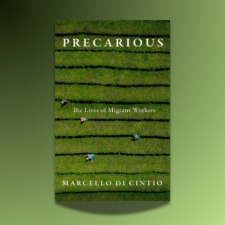
Cover design by Kate Sinclair.
The best way to ensure that you don’t miss any of these publications is to either pre-order them from your favourite independent (it’s so easy to do, especially with those shops that use the Bookmanager interface), or to take out a subscription directly from the press: we have several options available, that cover all aspects of our list. There’s no better way to ensure that independent publishers can continue to do the work that we do in this increasingly precarious time.
***
